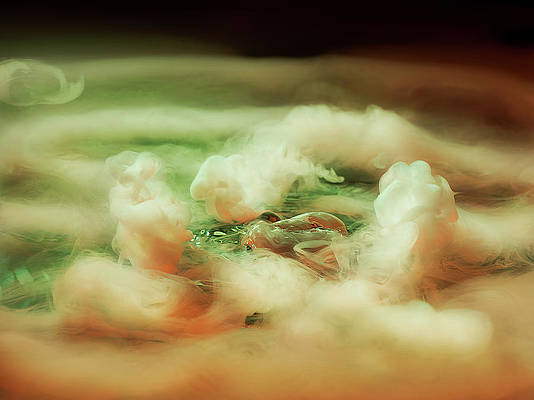Introduction
The allure of image-generating AI has surged. With the ability to give life to any type of imagination, AI has gained popularity among business people as well as in education. One such AI wizardry is exhibited by Midjourney AI. It translates text prompts into captivating AI-generated images. Here is a tutorial guiding you to bring your imagination to life through the hassle-free usage of Midjourney AI.
Table of Contents
Sign Up for Midjourney
Your journey to how to use Midjourney AI begins here.
- Make an account on Discord.
Visit the Discord website and sign up through this link. Set up an account.
- Join the Discord channel.
Head on to the Midjourney website through the link and click on the ‘join the beta’ option. You will land on Discord, where click on ‘accept invite.’
- Go to the Newcomers room.
Now, you can access Midjourney through Discord. Head to ‘Newcomers room’ and select any appropriate channel. We will go with ‘#newbies-50.’

Generate Your First Image
You are now ready to access Midjourney through Discord. Accept ToS and subscribe to Midjourney. A user gets 25 free prompts.
The prompt needs to be entered in a proper format. It will begin with ‘/imagine’ followed by your sentence.
Type in ‘/imagine’ in the chat box. Type your prompt and press ‘enter’ to get the results.

Let’s say your prompt is ‘a bustling cityscape at night’. Here is the generated result for the prompt. Remember that it takes time to generate the image. A blurred version is first provided, followed by scaling and refining, and finally, the generation of the actual image.

Edit Images with Upscaling and Variations
The room for variations is among the interesting aspects that help you add a personal touch. Midjourney provides an option to upscale and introduce variations. The upscaling is possible by clicking on the ‘up Res’ button, while for variations, you can opt between ‘strong’ and ‘subtle.’
The ‘strong’ option means you request a wide array of variations in the image, while the ‘subtle’ option is appropriate to choose when you need minor adjustments. There will be four generated images, out of which you can choose depending on your choice and interest.
You can also opt to upscale and vary all the generated images. A row of letters stating ‘U1’, ‘U2’, ‘U3’ and ‘U4’ at the top and ‘V1’, ‘V2’, ‘V3’ and ‘V4’ at the bottom will be available. Besides, if you are not satisfied with the generated set of images for your prompt, you can click on the ‘closed circle arrow’ button to re-run the AI to generate another set of images on the same prompt.
You can choose the picture according to the following numbering style.

Here is the upscaled and variation-based version of the previous image.

Here’s a ‘strong variation’ of the generated image.

And here’s a ‘subtle variation’ of the same image.

Pan and Zoom Out of Upscaled Images
Further enhancement is possible through the zoom-out option and by expanding the canvas in the chosen direction. Additionally, ‘panning’ the image increases the size. Getting it back to a small size is possible by clicking on the ‘zoom’ or ‘make square’ option. The different available options are:
- Zoom Out 2x and Zoom Out 1.5x: Two pre-available options to zoom out the image
- Custom Zoom: It allows allows to zoom out the image while editing or changing the prompts
- Pan: There are four directions that allow image expansion in direction. The option to add an original prompt is not possible.
- Make Square: The panned image is converted into the square crop.
So, now we know what each of the options does, let us visualize the capability of Midjourney AI. Begin with changing our prompt for accuracy in results. This time, we went with ‘A train is traveling through the countryside.’

Now, let us pan it towards the right.

Now let us take the previous image and perform ‘zoom out x2’.

Go Deeper with Prompts
Writing a clear and efficient prompt helps to generate accurate images. Here is the key to achieving these:
- Be specific: Be clear in your requirements and add different details. The usage of prepositions will generate more accurate results. Also, specify the quantity and try to use strong words.
- Don’t Over-Describe: Avoid repeating your words. Rather, focus on a single word that clearly expresses the right meaning.
- Consider The Details: Enlist all the details, such as lighting, mood, environment, and color, to get results closer to your imagination.
- Use images: You can modify your own image or any choice by adding the URL. Additionally, there is the option to add multiple images and then merge together the ‘/blend’ command.
- Play Around With Parameters: Adding more to the options for modification, you can play around with randomness, aspect ratio, and style. Increasing the specification head-on to avoid the inclusion of certain aspects using the No parameter. Type in ‘–no airplane (object)’ at the end of the prompt.
- Try /shorten: It is another important command to actually know when dealing with Midjourney AI. Typing in ‘/shorten’ asks Midjourney to suggest a smaller prompt based on the prompt. The shorter prompts will generally provide related prompts to the query.
- Dig Into Midjourney’s Docs: The Midjourney docs offer more information on multiple features offered by the AI. Using it is recommended to learn more about AI.
Conclusion
Midjourney is one of the various promising tools offered by generative AI. In this guide, you learned how to use Midjourney AI for image creation and editing. But how do you use other such generative AI tools? Efficient and creative use of AI lies in the will to learn about them. To enhance your career opportunities and open up the broad pathway, we bring you the GenAI course offered by Analytics Vidhya. The detailed course focuses on mastering all the right skills and tools required to be proficient in AI!





